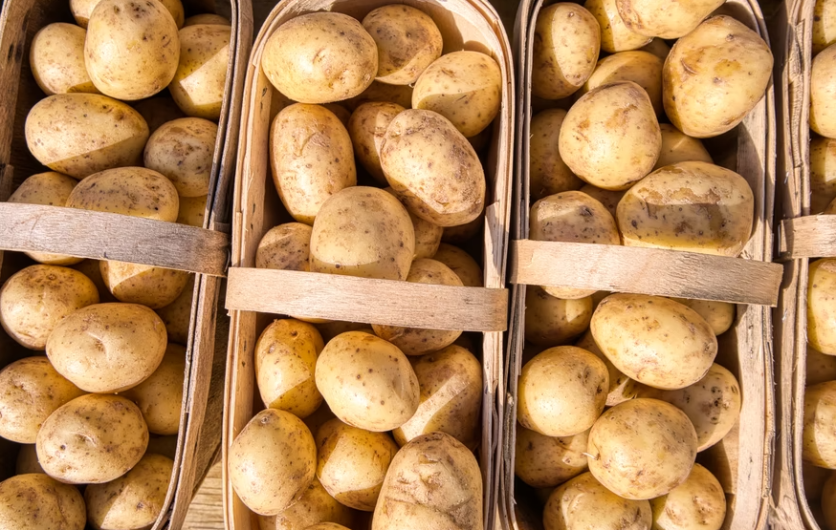
The researchers from the University of Maine are trying to produce potatoes that can withstand warming temperatures as the climate changes.
Warming temperatures and an extended growing season often lead to quality issues and disease. A professor of crop ecology and management, Gregory Porter, told Bangor Daily News of the plan.
Potatoes That Withstands Warming Temperature
Gregory Porter stated that the predictions for climate change are heavier rainfall events, and potatoes can't tolerate flooding or wet conditions as it gets quality issues, according to ABC News.
Porter added that if they want potatoes to be continued to be produced in Maine, they need to be able to produce varieties that can be resistant to change.
In different countries, research aimed at mitigating crop damage is underway. A NASA study published this month suggests climate change may affect the production of wheat and corn, reducing yields of both as soon as 2030.
Maine is coming off of a banner potato crop thanks to the success of the Caribou russet, which was developed by UMaine researchers.
However, Porter fears that even that variety is not as heat tolerant as necessary to resist the future effects of climate change.
Pests are another factor. The Colorado potato beetle and disease-spreading aphids have flourished with the changing climate, according to Jim Dill, a pest management specialist at the University of Maine Cooperative Extension.
Breeding seemingly small changes like hairier leaves that make it difficult for insects to move around on the plant can cut down on pests' destruction and also the need for pesticides. Breeding such characteristics into potatoes is a very long process of cross-pollinating different potatoes varieties.
The process is well underway. They are in the research testing phase right now at sites throughout the United States. Test potatoes in North Carolina, Virginia, and Florida are testing high-temperature stress.
Porter said that it does take ten years of selection after that initial cross-pollination, and it might take two to five years before enough commercial evaluation has taken place to release a new potato variety.
Favorite Food May Disappear Due to Climate Change
Climate change has become one of the most pressing concerns around the globe. Leaders and activists are now working towards taking measures to curb carbon emissions and tend to our planet, according to NDTV.
The impacts of climate change may be worse than what we may assume. According to a report by AFP, foods that we take for granted may disappear entirely or become scarce due to the impacts of climate change.
Scientists say that this boils down to the food's agricultural production or the way that plants are being cultivated.
Although selective breeding may have made crops more profitable, they also became extremely vulnerable to changing climate conditions such as droughts, heavy rains and more.
Benjamin Kilian, to AFP, the project lead for the Crop Wild Relatives Project at Crop Trust, said that we already lost genetic diversity during domestication history, therefore the potential of the elite crops to further adapt to the future, to climate change and other challenges are limited.
In 2019, a study showed that climate change caused fungus to grow on bananas.
Earlier this year, an AI showed just how massive the problem of climate change is.
This article is owned by Tech Times
Written by Sophie Webster
ⓒ 2025 TECHTIMES.com All rights reserved. Do not reproduce without permission.




